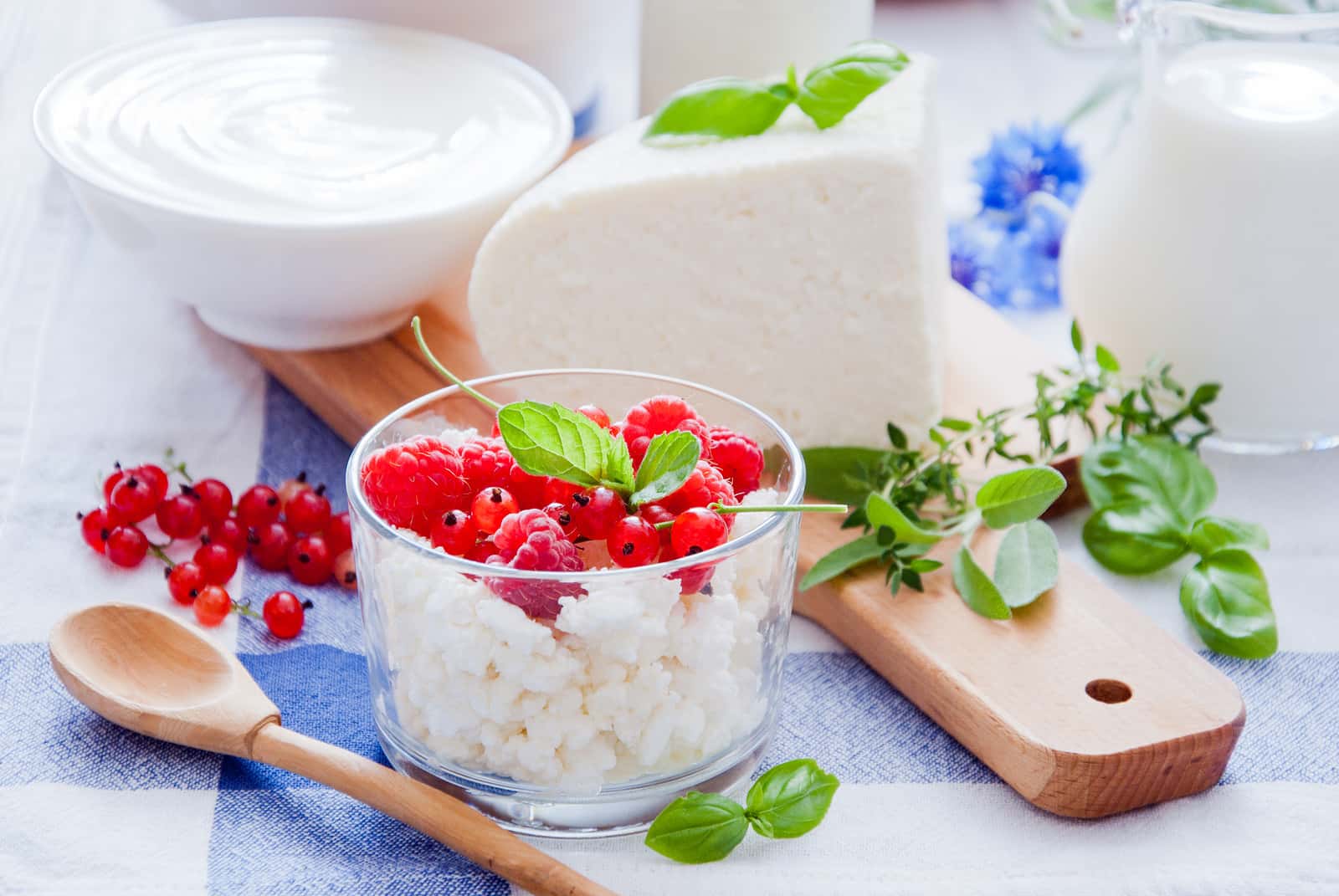
For years, cardiologists have warned their patients to be cautious about consuming too many dairy products. They worried that dairy fat would clog arteries. That, in turn, could lead to heart trouble. But perhaps they didn’t consider how a high dairy diet might affect blood pressure.
Lowering Blood Pressure with a High Dairy Diet:
A randomized clinical trial from the Netherlands suggests that consuming quantities of dairy products can actually help overweight middle-aged adults lower their blood pressure (American Journal of Clinical Nutrition, June 25, 2019). In this crossover study, 52 volunteers consumed a low dairy diet, with less than one serving per day, or a contrasting diet with 5 to 6 servings of low fat dairy products daily. The investigators defined one portion of dairy as a cup of low fat milk or buttermilk, or ¾ cup low fat yogurt or a one-ounce slice of low fat cheese.
Each diet trial period lasted six weeks, and there was a four-week washout period between them. The scientists measured their volunteers’ blood pressure at the beginning and end of each experimental diet period.
While people were consuming multiple dairy products daily, their blood pressure dropped by about 5 points systolic. In addition, they saw a reduction of 3 points in diastolic pressure. This difference, while modest, is statistically significant.
Diets that Reduce Blood Pressure:
Scientists have published more than 800 research articles about the ability of the DASH diet to lower blood pressure. DASH stands for Dietary Approaches to Stop Hypertension.
A review almost 20 years ago concluded:
“Thus the Dietary Approaches to Stop Hypertension (DASH) demonstrates that a diet rich in fruits, vegetables, low-fat dairy products, fibre and minerals (calcium, potassium and magnesium) produces a potent antihypertensive effect.” (British Journal of Nutrition, March 2000).
Hypertensive participants on the DASH diet lowered their blood pressure by nearly 12 points (New England Journal of Medicine, Jan. 4, 2001). Perhaps the DASH diet works well in part because it is a high dairy diet. If you would like to learn more about how to follow a DASH diet, you may wish to read our book, The People’s Pharmacy Quick & Handy Home Remedies. In it, we give guidelines and a chart to help you keep track of your vegetable and dairy intake.
Citations
- Rietsema S et al, " Effect of high compared with low dairy intake on blood pressure in overweight middle-aged adults: Results of a randomized crossover intervention study." American Journal of Clinical Nutrition, June 25, 2019. https://doi.org/10.1093/ajcn/nqz116
- Hermansen K, "Diet, blood pressure and hypertension." British Journal of Nutrition, March 2000.
- Sacks FM et al, "Effects on blood pressure of reduced dietary sodium and the Dietary Approaches to Stop Hypertension (DASH) diet. DASH-Sodium Collaborative Research Group." New England Journal of Medicine, Jan. 4, 2001. DOI: 10.1056/NEJM200101043440101

